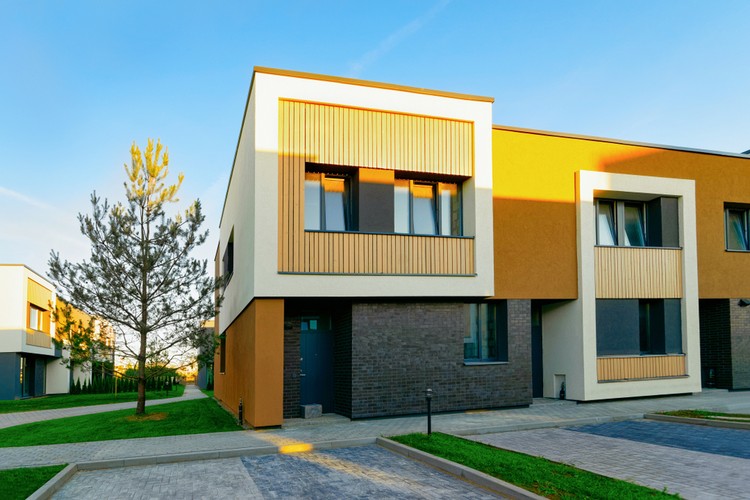The Rise of Modular Homes: A Modern Housing Solution
Modular homes offer flexible, pre-fabricated living spaces that combine efficiency with modern design. Built in sections off-site and assembled on location, they provide quality construction, customizable layouts, and faster build times, making them a practical choice for a variety of lifestyles.

What Are Modular Home Options?
Modular home options refer to the various types and styles of prefabricated houses available in the market. These homes are built in sections or modules in a controlled factory environment before being transported to the building site for assembly. The options range from single-story ranch-style homes to multi-story designs, offering flexibility to suit different preferences and lot sizes. Some popular modular home options include:
-
Cape Cod-style homes
-
Contemporary and modern designs
-
Colonial-style houses
-
Open-concept floor plans
-
Multi-family modular units
Each option can be further customized with various finishes, materials, and features to create a unique living space tailored to the homeowner’s needs.
How Do Prefabricated Modular Homes Work?
Prefabricated modular homes are constructed using a systematic approach that combines factory precision with on-site assembly. The process typically involves the following steps:
-
Design and Planning: Homebuyers work with architects or designers to create a custom floor plan or choose from existing designs.
-
Factory Construction: Individual modules are built in a climate-controlled facility, ensuring consistent quality and minimal weather-related delays.
-
Transportation: Completed modules are transported to the building site on specially designed carriers.
-
On-Site Assembly: Crane operators and construction teams work together to place and connect the modules on a prepared foundation.
-
Finishing Touches: Final connections, exterior finishes, and landscaping are completed on-site.
This streamlined process often results in faster construction times and reduced waste compared to traditional building methods.
What Are the Benefits of Modular Homes for Modern Living?
Modular homes offer several advantages that make them particularly well-suited for modern living:
-
Speed of Construction: The factory-based construction process can significantly reduce build times, often allowing homeowners to move in months earlier than with traditional construction.
-
Quality Control: Building in a controlled environment ensures consistent quality and reduces the risk of weather-related damage or delays.
-
Energy Efficiency: Many modular homes are designed with energy-efficient features, such as high-quality insulation and modern HVAC systems, leading to lower utility costs.
-
Customization: Despite being prefabricated, modular homes offer a high degree of customization, allowing homeowners to tailor their living spaces to their specific needs and preferences.
-
Cost-Effectiveness: The efficiency of the construction process and reduced on-site labor can lead to cost savings for homeowners.
-
Sustainability: Modular construction often results in less waste and can incorporate eco-friendly materials and technologies more easily.
How Do Modular Homes Compare to Traditional Construction?
When comparing modular homes to traditional stick-built houses, several key differences emerge:
| Factor | Modular Homes | Traditional Construction |
|---|---|---|
| Construction Time | Typically 6-12 weeks | 6-12 months or more |
| Weather Delays | Minimal (factory-built) | Common |
| Quality Control | Consistent (factory setting) | Variable (on-site conditions) |
| Customization | High, with some limitations | Unlimited |
| Initial Costs | Often lower | Generally higher |
| Resale Value | Comparable to traditional homes | Well-established |
| Environmental Impact | Reduced waste and energy use | Higher material waste |
Prices, rates, or cost estimates mentioned in this article are based on the latest available information but may change over time. Independent research is advised before making financial decisions.
What Are the Challenges of Choosing a Modular Home?
While modular homes offer many benefits, there are some challenges to consider:
-
Zoning and Building Codes: Some areas may have restrictions or specific requirements for modular homes.
-
Transportation Limitations: The size of modules may be limited by transportation regulations, potentially affecting design options.
-
Site Preparation: Proper foundation and utility connections are crucial and may require significant site work.
-
Financing: Some lenders may be less familiar with modular home construction, potentially complicating the mortgage process.
-
Perception: Despite improvements in quality and design, some people still associate modular homes with lower-end manufactured housing.
Modular homes represent a significant evolution in residential construction, offering a blend of efficiency, quality, and customization that aligns well with modern living requirements. As technology advances and consumer preferences shift towards more sustainable and cost-effective housing solutions, the popularity of modular homes is likely to continue growing. For those considering a new home, exploring modular options could provide an innovative path to homeownership that balances quality, affordability, and environmental responsibility.




